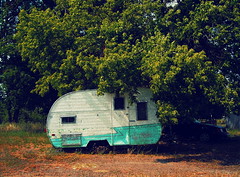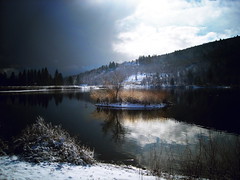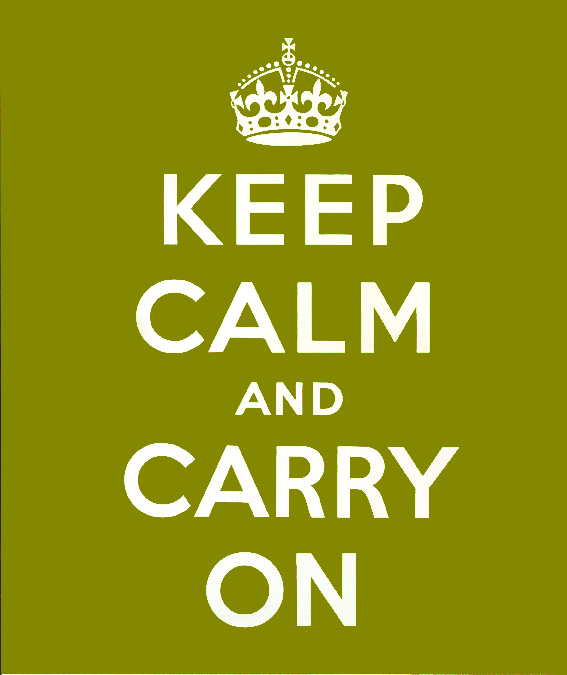 "... the courage to face the inner monsters takes a faith and trust in God that many of us do not possess (or don't want to possess), and so we busy ourselves with muchness and manyness and undertake our colossal enterprises to avoid looking inside." ~ Richard Foster, in the Introduction to The Sacrament of the Present Moment by Jean-Pierre de Caussade
"... the courage to face the inner monsters takes a faith and trust in God that many of us do not possess (or don't want to possess), and so we busy ourselves with muchness and manyness and undertake our colossal enterprises to avoid looking inside." ~ Richard Foster, in the Introduction to The Sacrament of the Present Moment by Jean-Pierre de Caussade
I do so understand the muchness and manyness. I struggle all the time with clutter - you know, the cool stuff I find at thrift stores that they just don't make anymore. The useful, or might-be-useful-one-day stuff. The books. Oooh, the books.
And as a consequence of the books, the thoughts piled on other thoughts. The ideas and plans.
Wonderful, all of it, but also heavy, at times.
I've come to love the idea of the Sabbath, a time to stop the noise for one blessed day. Sometimes I think I could do away with all of it, and move into a tiny home. Something like this:
Or even something like this - I have a fondness for old trailers:
Bertie Denys, the main character in my second novel, moves into an old gardener's shed in the mountains, in order to pursue a devout life after the manner of Saint Francis of Assisi. About the time I wrote this novel, I read a book by Henri Nouwen, in which he told a brief early history of the monastic movement, which began when the Roman Emperor Constantine became, at least on the surface, a Christian. Before this happened, Christians were persecuted in horrible ways, but now it was actually cool to be a Christian. Before, if you were a believer, your motives were clear because you sure weren't following Christ for security or power or position. Now the best way to get any of these things was to convert - at least on the surface. It changed everything.
So some Christians literally fled to caves in the desert, to avoid falling into the "worldly" mindset that valued security, power, and position above all else. How could they not, while they were immersed in a culture that dressed the church in the purple robes of political authority?
Having once been deprived of these riches, they had found others too precious to lose.
I can't help thinking they have something to teach me now.
How about you? How much would you fear the loss of muchness and manyness? Could you live in a Tiny House? Or just a (lowercase) tiny house?
I'd love to hear from you.
Fleeing the Muchness and Manyness
Monday, February 23, 2009Movies on Friday: The Snowman
Friday, February 20, 2009Do you remember this one? While it's still winter, let's indulge in a bit of wonder. If you want, you can watch the entire film by following this link.
This Place Right Here, This Moment Right Now
Wednesday, February 18, 2009 Do you have books on your shelf that you pick up again and again? One of my perennial favorites is a small volume of 103 pages: The Sacrament of the Present Moment. The book was written by an eighteenth century French Jesuit priest named Jean-Pierre deCaussade to explore a very twenty-first century question: How do we narrow our focus to this place right here, this moment right now?
Do you have books on your shelf that you pick up again and again? One of my perennial favorites is a small volume of 103 pages: The Sacrament of the Present Moment. The book was written by an eighteenth century French Jesuit priest named Jean-Pierre deCaussade to explore a very twenty-first century question: How do we narrow our focus to this place right here, this moment right now?
And by the way, should Christians even attempt such a pop-spirituality puruit as mindfulness, or... better question yet: are we even capable?
In the introduction, Richard Foster writes, "It is sad to say that much of modern Christianity is captivated by the religion of the 'big deal.' ... Big churches, big budgets, big names - certainly this is the sign of things important."
Now, I should note that Foster wrote this sometime around 1981, and it seems to me that we are less accepting of the corporate/celebrity church culture than we were then. At least we try to be. A couple of years ago, my son attended a Christian youth function where he heard a speaker rail against the cult of the big deal, the brand name. For a time after that, in our house labels disappeared from computers, from clothing, from mp3 players. But it seems to me that the event where he got this advice, Acquire the Fire, had built itself a pretty big brand of its own.
(Am I getting myself in trouble here? I'm not putting down AtF. I'm only pointing out, however awkwardly, that we can't seem to help building big brands even as we rebel against them.)
Foster continues: "To such idolatry deCaussade speaks with devastating precision. For him, the focus of God's activity is not center stage but backstage, in the insignificant moments we often cast aside."
Is it possible that we can find God best in this moment, with the water dripping from the eaves outside, with the bathtub that needs cleaning and the taxes that need filing?
Or put another way: Can we find him anyplace else?
More on this to come.
What I Learned When Times Were Bad
Monday, February 16, 2009 Several years ago, my family went through a bad time. Actually, it was a terrible time, so terrible in fact, I think of it as my "Job experience:" a string of events so relentless they seemed (sorry if this sounds paranoid) like God was out to get me.
Several years ago, my family went through a bad time. Actually, it was a terrible time, so terrible in fact, I think of it as my "Job experience:" a string of events so relentless they seemed (sorry if this sounds paranoid) like God was out to get me.
We are all fine now. We got through, and I have no desire to spill the details. But this seems a pretty good time to share with you the lessons I learned:
1. I had nothing to fear - well, very little to fear - but fear itself. It wasn't so much what happened; it was what I thought might happen that frayed my nerves, wrought havoc on my stomach and disposition, and kept me awake at night. It was fear, mostly, that made a difficult time into a nightmare.
2. I'm not a fortune teller. I thought I could project whole chains of events from a single cause. If this happened, then this would result, and the result of that would be... Nope. Not so. Things I prayed wouldn't happen... well, they did happen, but the result turned out to be quite different from what I expected. One or two of the things I feared most actually came to pass, but the rest did not. And we all survived the worst a lot better than I expected.
3. Things come to pass. They get better. Even when it seems they won't.
4. You put one foot in front of the other. It helped to make plans and take them step by step. Even when my plans seemed inadequate (because they were), motion was better than paralysis. When my steps faltered, it helped to forgive myself.Walks helped. Bubble baths helped. Flowers helped. (Weeds can look very nice in a vase, and they are free.)
5. God is good. Deeply good. I can't explain this, but the bad times changed me in ways that I actually like. Since that time I find it easier to let go of unimportant things. Easier to forgive. Easier to be happy. Easier to pray, and feel that I am not alone.
I don't mean to serve up platitudes here. I have friends who have suffered real tragedies. But I have watched these friends, hovered and wept over them. And observed that #5 seems to be so for them as well. They are deeper, better people, surrendered to the mystery of a God who loves them in their pain. It's like Job said: "Before, I heard about you by word of mouth. But now I see you face to face" (Job 42:5)
What have you learned from bad times? I'd love to hear your wisdom.
*The scripture verse is my paraphrase. I read it like that in some Bible someplace, but can't find the exact version now. If you know it, please help me out.







